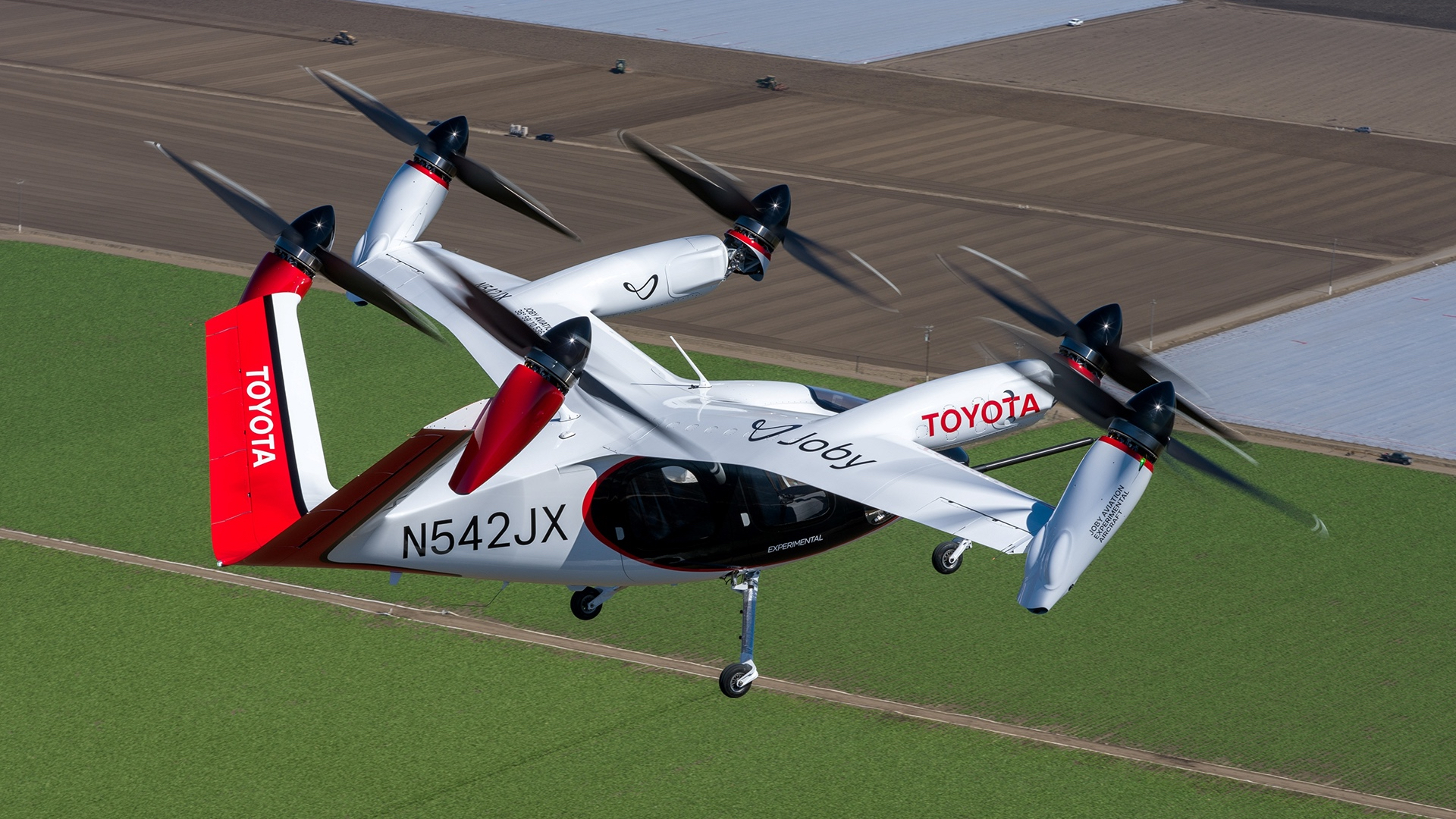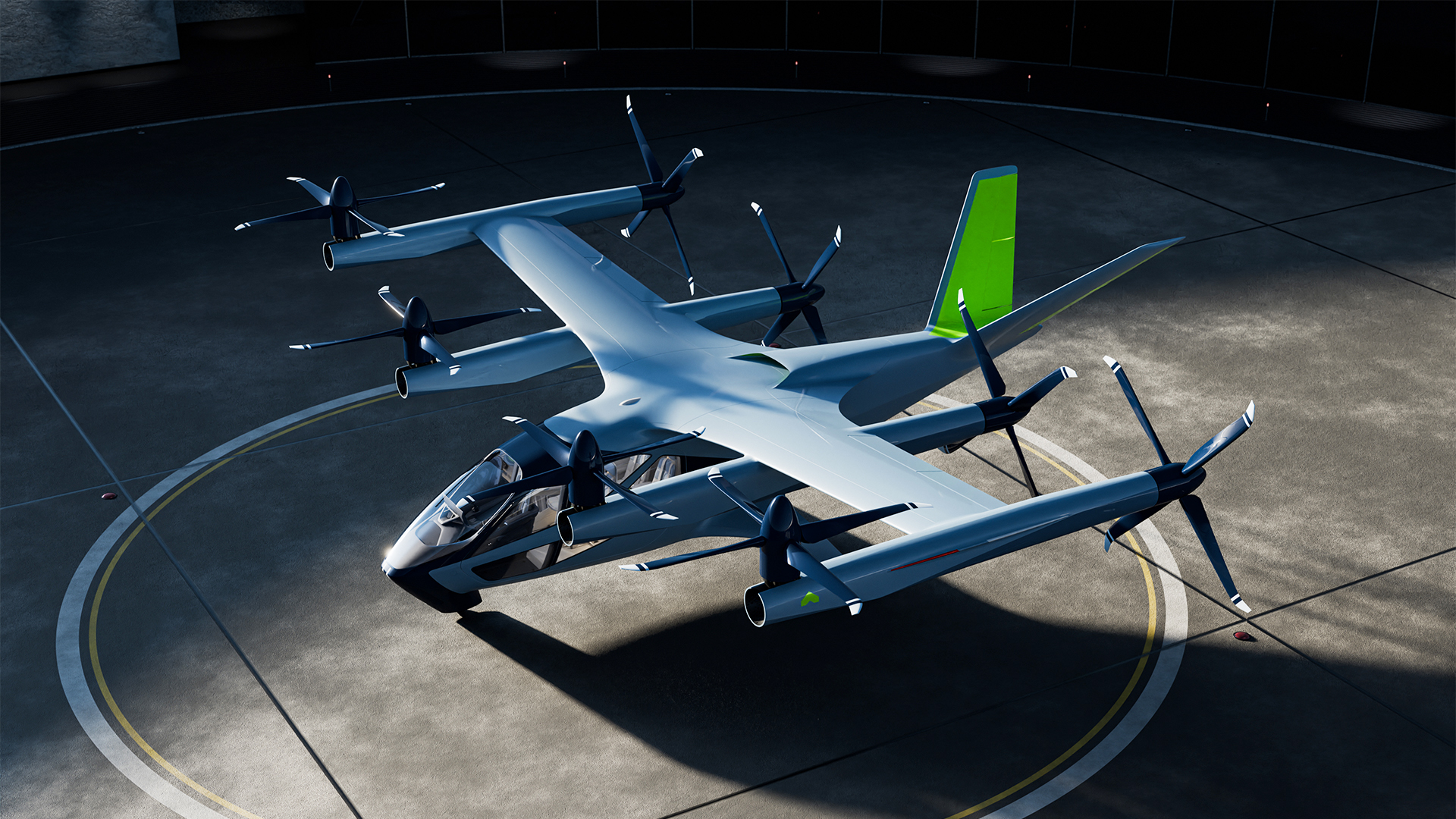Toyota invests another $500 million in an electric air taxi company as it soars toward the future of air mobility
Cash injection will speed up certification and commercial production of Joby’s eVTOL craft

Toyota has revealed that it has invested a further $500 million into Joby Aviation, a company founded in 2009 that has since been working on developing, producing, and certifying electric vertical take-off and landing craft (eVTOL).
The second round of funding follows a $394 million injection of capital back in 2020, and the Japanese car giant hopes it will speed up development, with the aim of realizing the two companies ‘shared vision of air mobility.’
Joby has been one of the leading companies in air taxi research, having acquired Uber’s Elevate start-up in 2020. Uber also invested $75 million in the venture to speed up the development and certification process.
According to Toyota, this isn’t just a financial deal. The company says it has been sharing its knowledge of the Toyota Production System via process planning, manufacturing method development, and tooling design.
Engineers from the two companies have been working alongside one another in Joby’s facility in California to realise a viable production method for commercial electric air taxis, while pushing forward with certification remains a priority if we are to see the technology in the air any time soon.
According to Joby Aviation, it has almost completed the fourth of a five-stage type certification process that would allow its aircraft to go into production.
Cleared for take-off

Although stuff of science-fiction fantasy, the rise of the electric vertical take-off craft has been rapid over the past few years, with the likes of Hyundai Motor Group launching its Supernal business and China’s XPeng HT Aero breaking serious ground on the topic.
Sign up for breaking news, reviews, opinion, top tech deals, and more.
Most companies plan to operate an Uber-style ride-hailing service that would allow a small group of customers to ride in a manned eVTOL craft, which is akin to a giant, multi-rotor drone. Though, plans for unmanned flights are also on the table.
In Supernal’s case, which is an operation now owned by the wider Hyundai Motor Group, its SA-2 electric aircraft features a four-seat cabin and eight rotors to get it off the ground, capable of propelling the machine at speeds of up to 120mph for journeys ranging from 25 to around 40 miles.
Flying at an altitude of around 1,500ft, the Supernal craft will cruise lower than commercial helicopters and other aircraft, with a view to beat traffic jams and congestion in heavily urbanized areas by hopping from one 'vertiport' to another.
In fact, a recent market report from the Global Advanced/Urban Air Mobility Market Map team revealed that at least 1,044 eVTOL vertiports currently being developed by numerous global companies could be operational by 2028.
Earlier this year, the Federal Aviation Administration (FAA), which regulates civil aviation in the United States, finalised the airworthiness criteria for Joby Aviation’s eVTOL craft, allowing the company to forge ahead with type certification.
However, the FAA is just one body, with China sporting its own unique set of rules and regulations.
Due to this, Chinese companies could enjoy greater freedoms in testing new technology, giving those businesses the potential upper hand in the future of eVTOL transport.
You Might Also Like...

Leon has been navigating a world where automotive and tech collide for almost 20 years, reporting on everything from in-car entertainment to robotised manufacturing plants. Currently, EVs are the focus of his attentions, but give it a few years and it will be electric vertical take-off and landing craft. Outside of work hours, he can be found tinkering with distinctly analogue motorcycles, because electric motors are no replacement for an old Honda inline four.